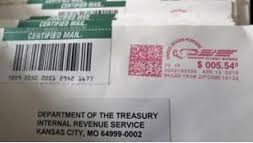Back Tax Balance Reduced by 80%
Mr. C was referred to Professional Tax Resolution by a friend who had previously used our services. Having failed to respond to a Notice of Intent to Audit for tax year 2005, he had recently received an IRS Notice informing him that he owed over 150k in back taxes. On top of this, the IRS had initiated enforced collection activities to collect the tax amounts owed. In desperate need of professional tax settlement help, he contacted our firm.
At one time, Mr. C had a flourishing real estate company with offices in three states and a high gross profit. However,once the economy stopped booming, so did Mr. C’s businesses. By the time he contacted our firm, he was barely meeting his monthly expenses, let alone having sufficient funds to pay a large tax debt. After reviewing his financial information, our tax professionals decided that Mr. C would qualify for an Offer in Compromise in spite of the fact there were some special circumstances that we knew would make his case a hard sell with the IRS. Undeterred, our team set to work preparing his most recent corporate and personal tax returns and submitting his Offer in Compromise packet.
As we expected, the IRS questioned many actions of the taxpayer and facts of the case. They stated that Mr. C did not qualify for an Offer in Compromise because he had dissipated 401k assets that would have paid the tax liability in full after he had incurred the tax debt. In addition, they noted that he owned two corporations that could be sold to pay off the full amount of the outstanding tax liability. In response to their first concern, our professionals were able to show that all of the monies withdrawn from the 410k had been put into an income producing asset which was necessary for Mr. (Zoloft) C’s survival. They then went on to address the second concern by producing two business valuations which showed that the value of the business was only equal to the value of the business assets which was not enough to pay off the tax debt. In fact, by not backing down and doing the necessary legwork, our professionals were able to show that final value of all of Mr. C’s assets was approximately 27k, the exact amount of his compromise offer!
After the IRS had verbally agreed to accept the 27k offer, the tax resolution specialist stated that he wanted a collateral agreement based on future annual income over 50k. This would mean that if Mr. C made over 50k in one year, the income in excess of that amount would be taxed at a higher rate to pay off the old tax liability. Our professionals advised Mr. C that signing this agreement would not be in his best interest and quickly submitted a response to the IRS stating that 50k was not a reasonable amount. We were able to show that the client’s cost of living was over 50k and that the IRS had figured the amount incorrectly according to the Internal Revenue Service Manual. After a careful review of our response, the IRS adjusted the collateral agreement to begin at 95K, making it very unlikely that Mr. C would ever be required to pay more than the negotiated Offer in Compromise amount.
Although some tax settlement cases are cut and dried, most have extenuating circumstances that make them more difficult to resolve as was the case with M. C. This makes it important for a delinquent taxpayer to choose a tax resolution team that has a proven track record of negotiating successfully with the IRS. Professional Tax Resolution has such a record. Our staff prides themselves in keeping the client’s best interest in mind and achieving the best tax settlement possible for their specific set of circumstances.
If you have tax questions or a tax debt you are unable to pay, our tax settlement professionals are happy to discuss your tax resolution options free of charge. For more information about our services, visit us today at www.professionaltaxresolution.com or call us at 877.889.6527. With over 16 years in the business of resolving tax debt, we have a thorough understanding of tax law together with the experience to know which settlement option will be the best fit for your specific set of circumstances.




